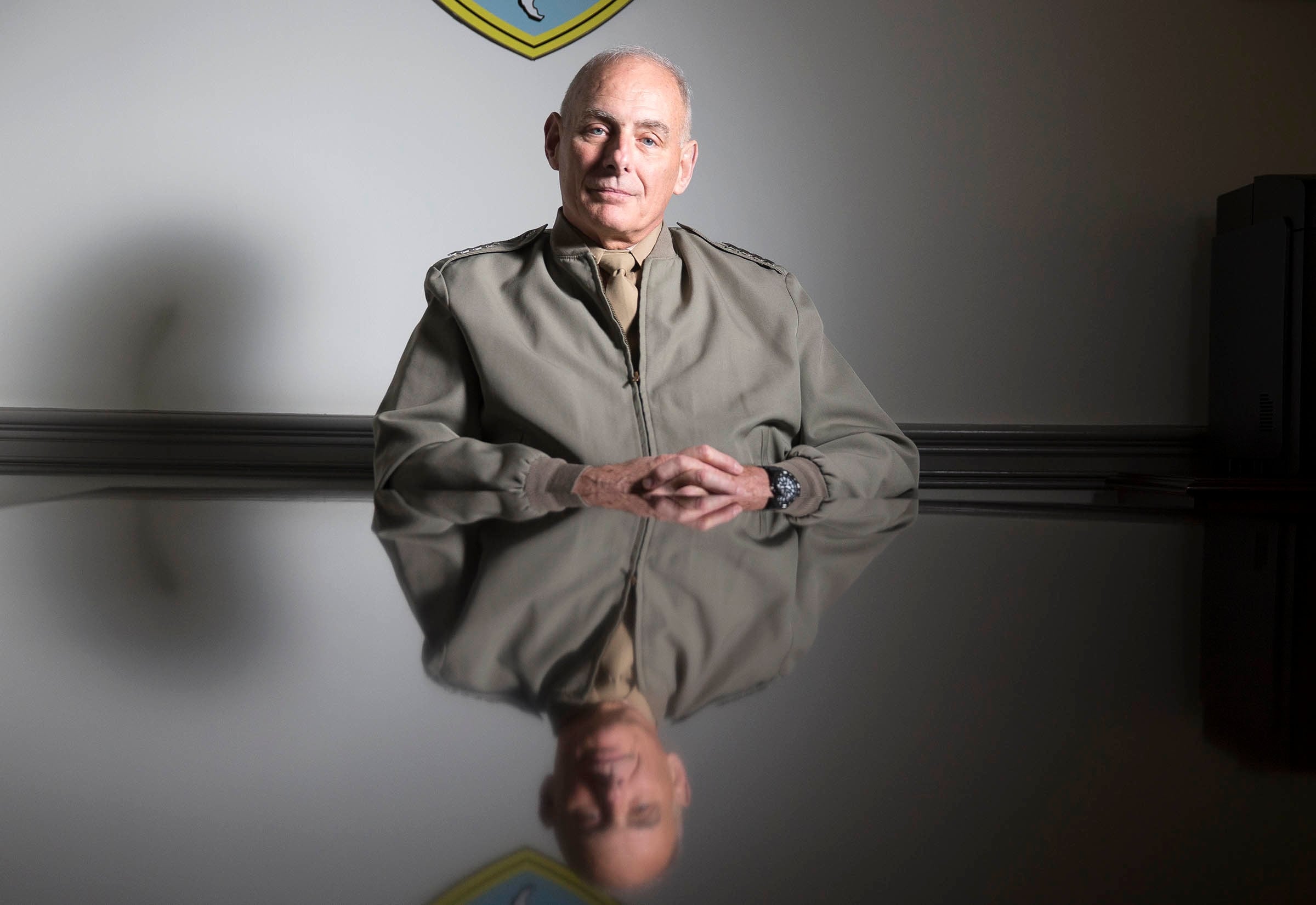WASHINGTON — Retired Marine Gen. John Kelly is a battle-hardened commander who would bring a background of military discipline and order to President Donald Trump’s roiling White House as the new chief of staff.
Kelly’s experience as Homeland Security secretary and a veteran of three tours in Iraq — along with a sobering family tragedy — suggests he’ll be a loyal manager for Trump when he starts the job Monday.
“He has been a true star of my administration,” the president tweeted Friday, announcing that his current secretary of homeland security was in, and White House chief of staff Reince Priebus was out. Trump called Kelly a “great leader” and “great American.” He called Priebus, ousted after a tumultuous six months, a “good man.”
As Homeland Security secretary, Kelly has taken the lead on some of Trump’s most controversial policies, including his executive orders suspending the admission of refugees and temporarily barring visitors from several Muslim-majority nations. Those orders have been stripped down by courts pending a Supreme Court review this fall.
People who know Kelly told The Associated Press that he was not aware of the details of the initial orders until around the time that Trump signed it. Yet, just days after taking office, he had to lead the agency as it dealt with the chaos and confusion that ensued at airports in the U.S. and around the world. He defended the orders to reporters and lawmakers and insisted he indeed had been part of the decision-making process.
Kelly has stood up to Congress, another facet of his history that Trump might find attractive.
In April, Kelly bluntly challenged members of Congress critical of the Trump administration’s aggressive approach to immigration enforcement to either change the laws or “shut up.”
But Kelly has won bipartisan respect from lawmakers as a result of his distinguished military career. He joined the Marine Corps in 1970, carving out a reputation as a highly respected but often outspoken commander who could roil debate and issue unpopular directives on issues ranging from women in combat to the treatment of detainees at the Guantanamo Bay, Cuba, detention center.
RELATED

Kelly was the fifth person to lead the Department of Homeland Security, which includes agencies that protect the president, respond to disasters, enforce immigration laws, protect America’s coastlines and secure air travel. His selection as secretary bolstered concerns about an increase in military influence in a Trump White House.
Kelly also holds a somber distinction. He was the highest-ranking officer to lose a child in combat in Iraq or Afghanistan. Kelly’s son, Marine 1st Lt. Robert Kelly, was killed in November 2010 in Afghanistan.
He retired from the military last year, wrapping up a three-year post as head of U.S. Southern Command, which spanned some of the more fractious debate over the Obama administration’s ultimately failed attempt to close the detainee facility at Guantanamo.
In his final Pentagon news conference, Kelly spoke about the loss of his son — a topic he didn’t often discuss publicly.
“To lose a child is — I can’t imagine anything worse than that. I used to think, when I’d go to all of my trips up to Bethesda, Walter Reed, I’ll go to the funerals with the secretaries of defense, that I could somehow imagine what it would be like,” Kelly said.
But, he added, “when you lose one in combat, there’s a — in my opinion — there’s a pride that goes with it, that he didn’t have to be there doing what he was doing. He wanted to be there. He volunteered.”
Kelly said he gets “occasional letters from Gold Star families who are asking, ‘Was it worth it?’ And I always go back with this: It doesn’t matter. That’s not our question to ask as parents. That young person thought it was worth it, and that’s the only opinion that counts.”




